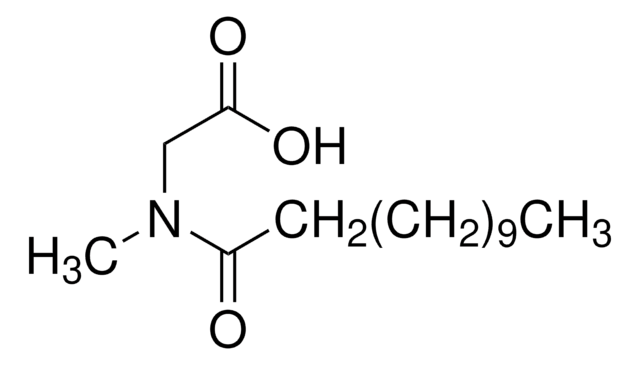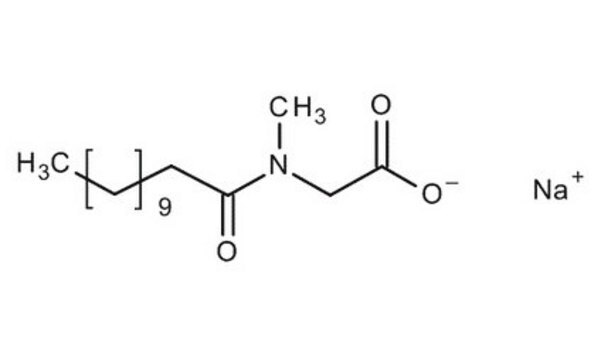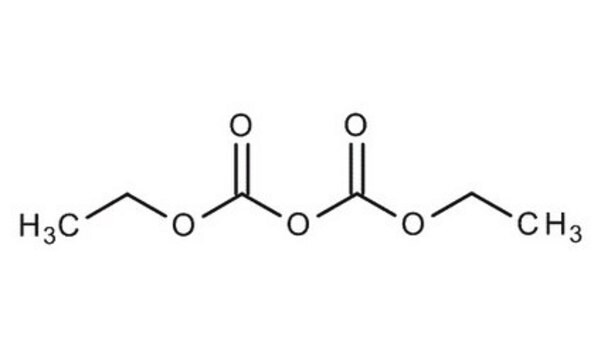Wichtige Dokumente
61739
N-Lauroylsarcosin
purum p.a., ≥98.0% (GC)
Synonym(e):
N-Dodecanoyl-N-methylglycin, Sarkosyl L
About This Item
Empfohlene Produkte
Beschreibung
anionic
Qualitätsniveau
Qualität
purum p.a.
Assay
≥98.0% (GC)
Mol-Gew.
271.40 g/mol
Methode(n)
protein quantification: suitable
Verunreinigungen
≤0.2% water
Glührückstand
≤0.1%
mp (Schmelzpunkt)
45-50 °C
Anionenspuren
chloride (Cl-): ≤50 mg/kg
sulfate (SO42-): ≤100 mg/kg
Kationenspuren
Ca: ≤20 mg/kg
Cd: ≤5 mg/kg
Co: ≤5 mg/kg
Cr: ≤5 mg/kg
Cu: ≤5 mg/kg
Fe: ≤10 mg/kg
K: ≤70 mg/kg
Mg: ≤5 mg/kg
Mn: ≤5 mg/kg
Na: ≤200 mg/kg
Ni: ≤5 mg/kg
Pb: ≤5 mg/kg
Zn: ≤20 mg/kg
Funktionelle Gruppe
amide
carboxylic acid
SMILES String
CCCCCCCCCCCC(=O)N(C)CC(O)=O
InChI
1S/C15H29NO3/c1-3-4-5-6-7-8-9-10-11-12-14(17)16(2)13-15(18)19/h3-13H2,1-2H3,(H,18,19)
InChIKey
BACYUWVYYTXETD-UHFFFAOYSA-N
Suchen Sie nach ähnlichen Produkten? Aufrufen Leitfaden zum Produktvergleich
Allgemeine Beschreibung
Anwendung
Signalwort
Danger
H-Sätze
Gefahreneinstufungen
Acute Tox. 2 Inhalation - Eye Dam. 1 - Skin Irrit. 2
Lagerklassenschlüssel
6.1A - Combustible acute toxic Cat. 1 and 2 / very toxic hazardous materials
WGK
WGK 1
Flammpunkt (°F)
Not applicable
Flammpunkt (°C)
Not applicable
Persönliche Schutzausrüstung
dust mask type N95 (US), Eyeshields, Gloves
Hier finden Sie alle aktuellen Versionen:
Besitzen Sie dieses Produkt bereits?
In der Dokumentenbibliothek finden Sie die Dokumentation zu den Produkten, die Sie kürzlich erworben haben.
Kunden haben sich ebenfalls angesehen
Unser Team von Wissenschaftlern verfügt über Erfahrung in allen Forschungsbereichen einschließlich Life Science, Materialwissenschaften, chemischer Synthese, Chromatographie, Analytik und vielen mehr..
Setzen Sie sich mit dem technischen Dienst in Verbindung.








